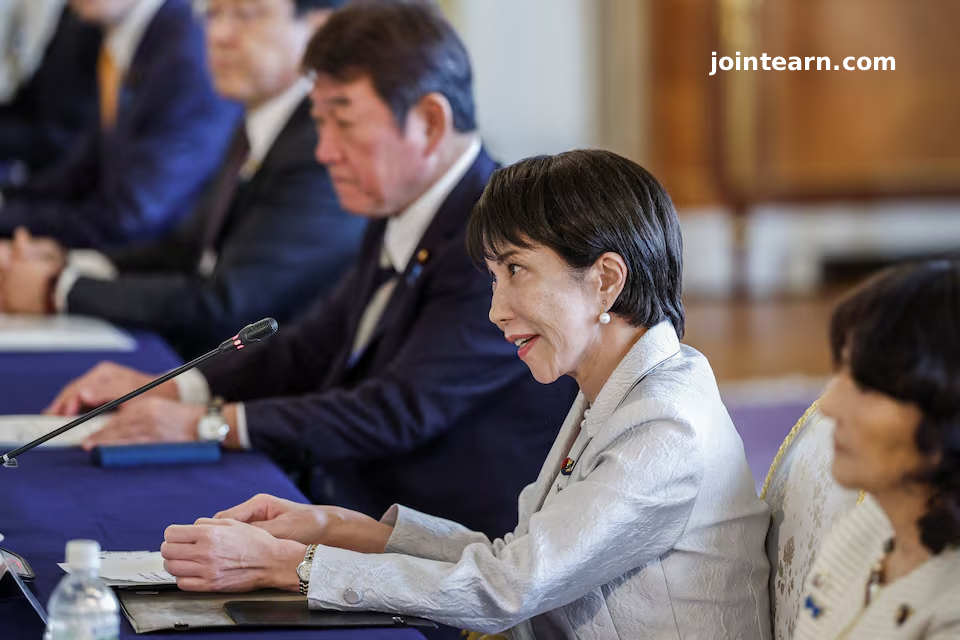
Tokyo, October 29, 2025 – Japan’s new Prime Minister Sanae Takaichi told U.S. President Donald Trump during their bilateral meeting in Tokyo that banning Russian liquefied natural gas (LNG) imports would be extremely difficult for Japan, according to two government sources who requested anonymity.
The discussion took place amid heightened pressure from the United States for global buyers of Russian energy to halt imports and impose sanctions on Moscow’s two largest oil producers, Rosneft and Lukoil, as part of efforts to push Russia to end the Ukraine conflict.
Japan’s Reliance on Russian LNG
Russian LNG accounts for nearly 9% of Japan’s total LNG imports, with Japanese conglomerates Mitsui and Mitsubishi holding stakes in the Sakhalin-2 LNG project in Russia’s Far East. Prime Minister Takaichi emphasized to Trump that an immediate halt to Russian LNG purchases would pose significant challenges to Japan’s energy security and would likely increase electricity costs.
According to sources, Takaichi argued that cutting off Russian LNG would “only make China and Russia happy,” highlighting Japan’s concerns over regional energy stability and supply diversification.
Energy Strategy and Diversification
Japan has increased U.S. LNG imports in recent years to reduce dependence on Australia and prepare for the eventual expiration of supply contracts with Sakhalin-2, which are set to end between 2028 and 2033. The government has stressed that replacing this gas would be costly, potentially driving up energy prices for consumers and businesses alike.
While Japan purchases less than 1% of its oil imports from Russia under a sanctions waiver set to expire in December, the majority of its oil comes from the Middle East. Japan’s energy ministry has emphasized the importance of maintaining a balanced approach to energy sourcing while complying with international sanctions regimes.
Regional Context
China and India remain the top buyers of Russian energy exports, although many Indian refiners have paused new orders due to recent U.S. sanctions while awaiting clarity on government policy and supplier availability. Meanwhile, Russia’s second-largest oil producer, Lukoil, announced plans to sell its international assets, signaling potential shifts in global oil and gas markets.
Prime Minister Takaichi, who was elected as Japan’s first female prime minister last week, has indicated that Japan will continue to balance its strategic energy needs with international diplomatic pressures while ensuring energy affordability and reliability for domestic consumers.


Leave a Reply